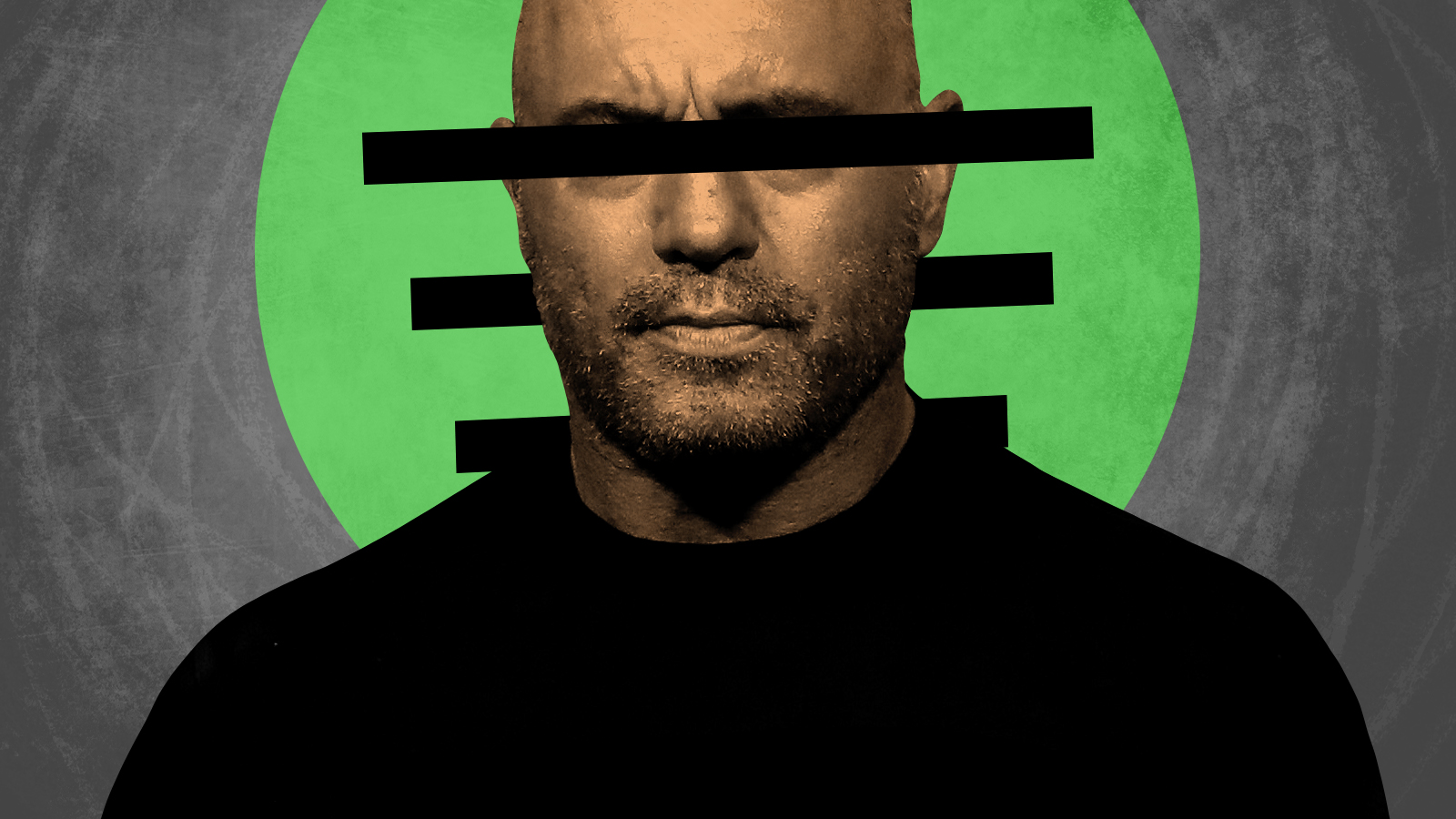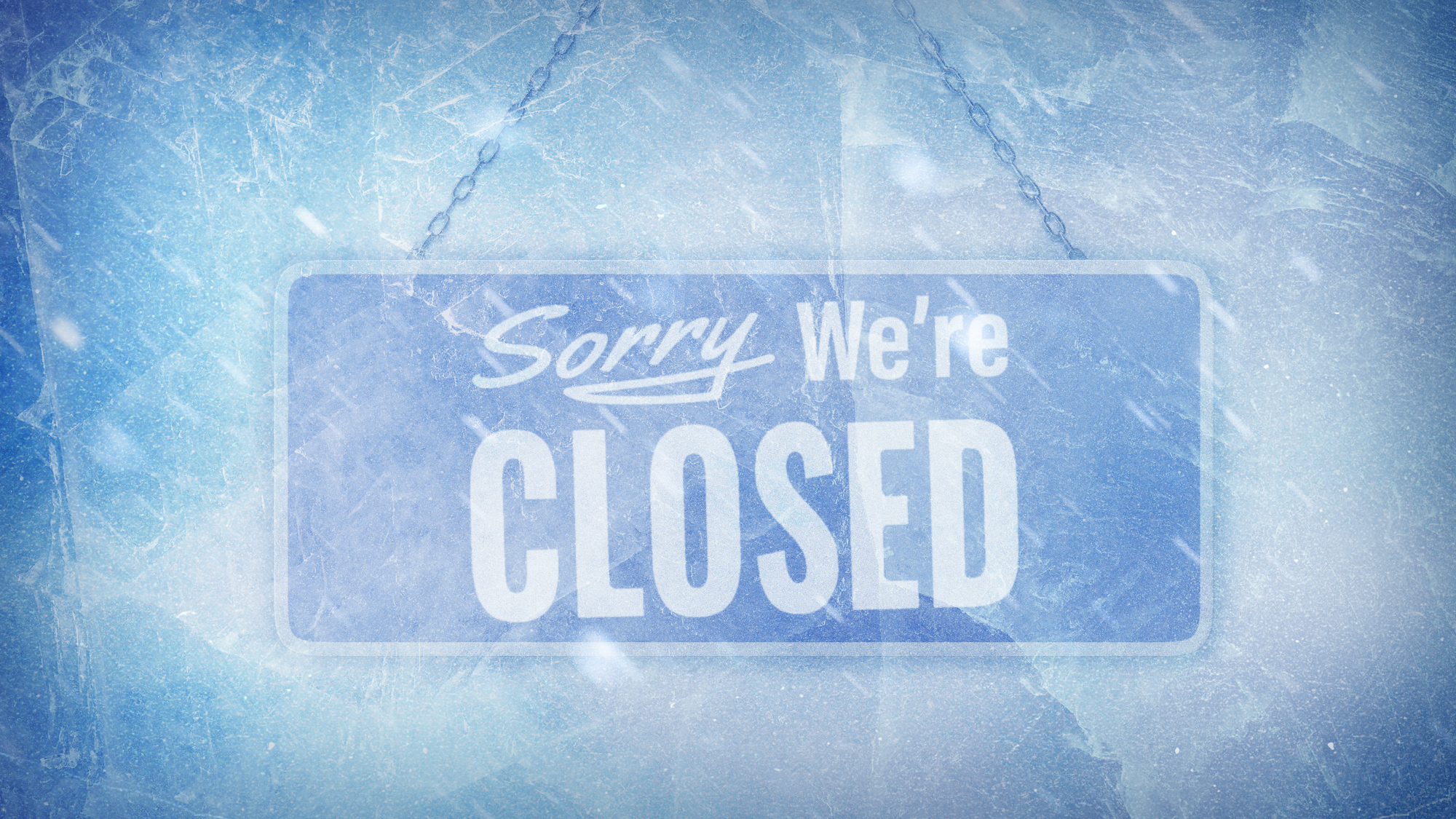What's really at stake in the Joe Rogan kerfuffle


A free daily email with the biggest news stories of the day – and the best features from TheWeek.com
You are now subscribed
Your newsletter sign-up was successful
There's something odd about the protest against Spotify's mega-podcaster Joe Rogan.
It started when folk-rocker Neil Young issued an ultimatum: Rogan shouldn't be spreading skepticism about vaccines, so either he goes or I do. When Spotify refused to break its multimillion-dollar deal with Rogan, Young made good on his threat, pulling his music from the streaming platform. Then singer-songwriter Joni Mitchell did the same, followed by some lower-profile acts. Rumors about bigger artists (Paul McCartney, Bruce Springsteen, The Rolling Stones) joining the exodus have been swirling for days, so far with no confirmations.
What's strange about this effort to deplatform Rogan is that his popularity preceded, and made possible, his deal with Spotify. If the protest succeeds in getting him booted, he can simply go back to making his podcast available on other platforms or launch his own. A "win" would merely allow certain politically progressive artists to end their tacit association with a personality whose brand is the puncturing of liberal pieties.
The Week
Escape your echo chamber. Get the facts behind the news, plus analysis from multiple perspectives.

Sign up for The Week's Free Newsletters
From our morning news briefing to a weekly Good News Newsletter, get the best of The Week delivered directly to your inbox.
From our morning news briefing to a weekly Good News Newsletter, get the best of The Week delivered directly to your inbox.
To the extent the protest is about more than easing the consciences of a (so far) limited group of musicians, it's an expression of frustration at the failure of vaccination rates to rise higher than they have. One way to combat this tendency would be to attack the demand side by, say, denouncing Rogan's listeners for their foolishness and attempting to educate them about the effectiveness and safety of the mRNA vaccines. But the Spotify protest focuses instead on the supply side: attempting to punish Rogan for disseminating arguments and evidence that might justify vaccine resistance.
As I noted above, a supply-focused approach can't work, because Rogan has numerous ways to reach his audience if his Spotify arrangement falls through. But the more important question is why there's such a large audience for such skepticism in the first place. Part of the answer is incorrigible and long-standing American opposition to experts and authorities of all kinds.
Then there are the failures of the pandemic's leading experts and authorities: the CDC, FDA, HHS, Big Pharma, etc. Overall they've done an admirable job in an uncertain and often confusing situation. But as Rogan himself notes in his videotaped statement responding to the Spotify protests, they have also made some mistakes while at every step insinuating that to question their authority is an expression of a dangerous animus against science.
What Young and Mitchell ultimately appear to be objecting to is the legitimacy of raising skeptical questions about the claims of public-health experts and authorities during a pandemic, presumably on the grounds that furthering the public good and saving lives requires taking a more deferential stance. It's hardly surprising that many would disagree with that assumption and conclude that it smacks of an effort to shut down justified criticism.
A free daily email with the biggest news stories of the day – and the best features from TheWeek.com
Joe Rogan may sometimes go too far in promoting crackpot ideas about vaccines. But that doesn't mean it makes sense to try (and fail) to silence his voice.
Damon Linker is a senior correspondent at TheWeek.com. He is also a former contributing editor at The New Republic and the author of The Theocons and The Religious Test.
-
 Political cartoons for February 15
Political cartoons for February 15Cartoons Sunday's political cartoons include political ventriloquism, Europe in the middle, and more
-
 The broken water companies failing England and Wales
The broken water companies failing England and WalesExplainer With rising bills, deteriorating river health and a lack of investment, regulators face an uphill battle to stabilise the industry
-
 A thrilling foodie city in northern Japan
A thrilling foodie city in northern JapanThe Week Recommends The food scene here is ‘unspoilt’ and ‘fun’
-
 Big-time money squabbles: the conflict over California’s proposed billionaire tax
Big-time money squabbles: the conflict over California’s proposed billionaire taxTalking Points Californians worth more than $1.1 billion would pay a one-time 5% tax
-
 Did Alex Pretti’s killing open a GOP rift on guns?
Did Alex Pretti’s killing open a GOP rift on guns?Talking Points Second Amendment groups push back on the White House narrative
-
 Businesses are caught in the middle of ICE activities
Businesses are caught in the middle of ICE activitiesIn the Spotlight Many companies are being forced to choose a side in the ICE debate
-
 Washington grapples with ICE’s growing footprint — and future
Washington grapples with ICE’s growing footprint — and futureTALKING POINTS The deadly provocations of federal officers in Minnesota have put ICE back in the national spotlight
-
 Trump’s Greenland ambitions push NATO to the edge
Trump’s Greenland ambitions push NATO to the edgeTalking Points The military alliance is facing its worst-ever crisis
-
 The high street: Britain’s next political battleground?
The high street: Britain’s next political battleground?In the Spotlight Mass closure of shops and influx of organised crime are fuelling voter anger, and offer an opening for Reform UK
-
 Why is Trump threatening defense firms?
Why is Trump threatening defense firms?Talking Points CEO pay and stock buybacks will be restricted
-
 The billionaires’ wealth tax: a catastrophe for California?
The billionaires’ wealth tax: a catastrophe for California?Talking Point Peter Thiel and Larry Page preparing to change state residency
